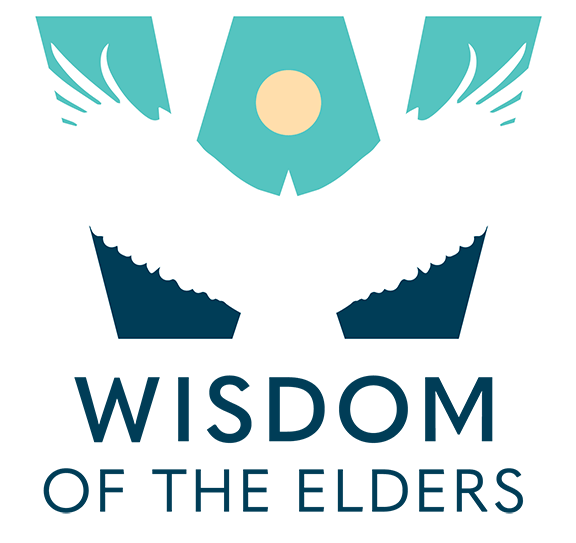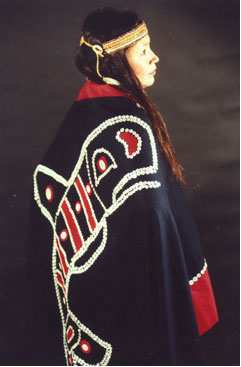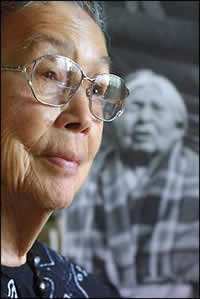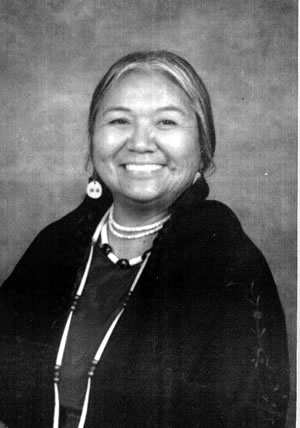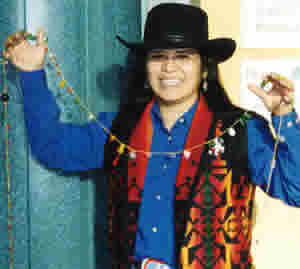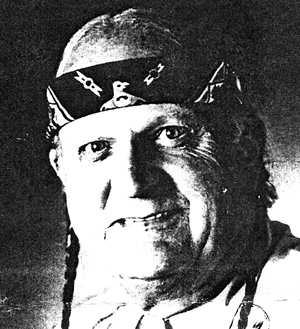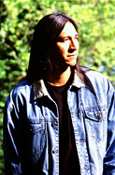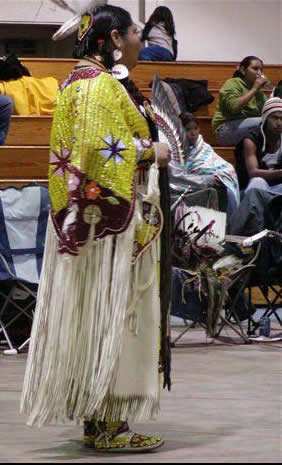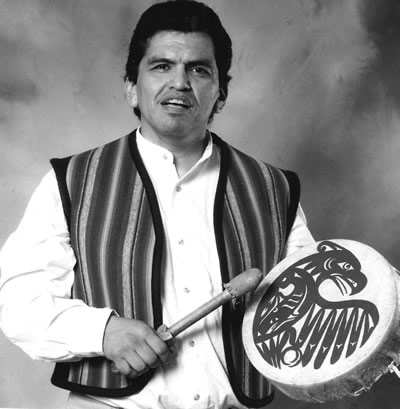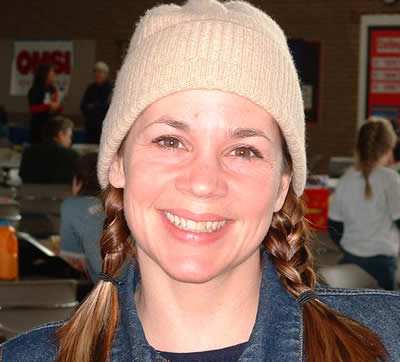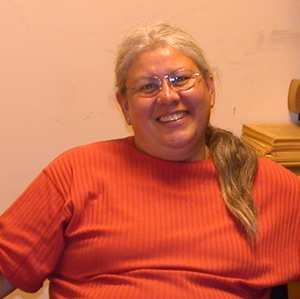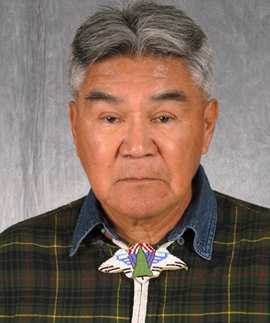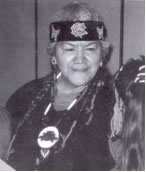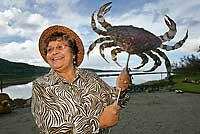Washington Storytellers
harvest Moon
Harvest Moon is a Quinault Ambassador, historian, basket weaver, and storyteller. Her combined talents and many skills help her create educational lectures for people of all ages. In her presentations, she describes in-depth programs of the Coastal Salish Natives. Harvest Moon brings in hands-on artifacts, which deliver a clearer perspective of how things were done. She will speak of the abundance of life amongst the Northwest Coast Tribes, whose rich culture has been handed down from generation to generation. Discover the unique heritage that they hold close to their hearts.
Vi Hilbert
I’m Vi (Taq.Se.Blu) Hilbert, daughter of Louise and Charlie Anderson, from the Upper Scagit tribe, which is near Cedar Woolley near the Scagit River. The cedar and the salmon. People in our culture, the salmon were people. Each species was known to come and go at certain times and they were honored for the lives that they gave to my people for sustenance. They were honored in song and prayer. They were spoken to as if they would understand everything that was said to them because everything that has a life also has spirit.
Vivian Harrison
My name’s Vivian Harrison and I have my mother’s Indian name, StuYat. I was born right here on the Yakama Reservation at Harrah, my uncle’s house at a place called Charlie’s Pond. My mother’s mother was from the Palouse Band over towards Idaho on the Snake River. My mother’s father is from Spearfish, the WishramBand. My father is from the White Swan area, Yakama. So I’m completely Plateau and I was born in 1945. My mother was a weaver and a bead worker and she was very proficient with taking care of salmon in every way. By that I mean cleaning it, cutting it, drying it, and preparing it in other ways. That’s a mainstay of our diet on the Columbia River and that was where I grew up.
Hollyanna Pinkham
Good morning. My name is Sound of a Woman Working, and I’m also called Cougar Tracks. I am Yakama, Nez Perce, Cayuse, Umatilla, and Grand Ronde. I am considered a storyteller by my people and my family. There’re many stories that I can tell that is not only traditional but also of events that have happened in our family’s lives that have been told to me by elders.
Roy Wilson
My name is Roy Wilson. I am an enrolled member of the Cowlitz Indian tribe. I was born with an Indian father and a non-Indian mother. I have Cowlitz blood, Chinook blood, Yakama blood, and Iroquois blood. In my tribe, I served for thirty-two years on the tribal council, almost a third of a century. I served as Chairman of the General Council in the 1970s, and in the latter years as Chairman of the Tribal Council. I also for many years have served as the tribal spiritual leader in the old tribal traditional ways.
Gene Tagaban
My original name, my other name is Gene Tagaban. I am a storyteller, a counselor, a trainer, a healer. I’ve been practicing my craft now for about fifteen years or so. I remember my grandfather when I was growing up telling me that, “Son, you are a story. Life is a story.” And I didn’t understand that. What was he talking about? “I don’t understand, Grandfather.”
Katrina Miller Walsey
My name is Katrina Miller Walsey. I’m a member of the Yakama Nation. My Indian name is yut-te-le-low-wit. With my job, I do a lot of storytelling. We have done stories; they’re from the Pushami storybook and we do some about the beavers, the big frog, and these stories are of the landmarks that are within the Yakama Reservation, or that we can see. They’re like, “Oh, that’s where it came from” and so we can see how the animals had made these landmarks.
Roger Fernandes
My name is Roger Fernandes. My native name is Kawasa. I’m a member of the Lower Elwha Band of the Klallam Indians from the Port Angeles area of the state of Washington. I was born and raised in the Seattle area. My mother moved to the city when she was a young woman and I was born in 1951 in Seattle.
Christina Dupres
One of the things that really compels me is the problem with history, especially the history of indigenous people. Then last my own history, where do I fit in as a native woman? How do my experience and the experience of a native individual speak to the group as a whole?
Joyce Victoria Ross Button
My name is Joyce Victoria Ross Button. I work at the Yakama Nation Library. I’ve been here back and forth for about ten years. I’ve been working mainly in the Strong Heart Room. It’s a collection of rare books that Nepal Strong Heart had when he was back in the black and white films.
Ron Pond
I’m really pleased to participate in this event. I’m a Native American enrolled in the Umatilla tribe, which is located in northeastern Oregon. We adopted a constitution and by-laws in 1949, so as principally three tribes—the Umatilla, the Walla Walla, and the Cayuse. After the constitution was adopted it became known as the Confederated Tribes of the Umatilla Indian Reservation.
Pauline Hillaire
To interpret what I said is merely an introduction. Hello, my friends and relatives. I’m happy to be here today and my name is Pauline Hillaire and I come from the Lummi Nation. Today I’d like to share with everyone that I am a storyteller. I am a historian. I’m a genealogist and I tell legends in schools and teach Indian songs to the kids to pass it on. It’s time for sharing. One of the things I do talk about in schools is the true stories – especially from the government documents.
Elaine Grinnell
Elaine Grinnell is an elder in the Jamestown Klallam tribe and lives in Sequim, Washington. She was born October 16, 1936, in Port Angeles, Washington. She married Fredrick C. Grinnell in 1960 and they have three children: Jack, Julia, and Kurt. Zackary, Nickolas, and Mackenzie (Jack & Michelle), Khia, Michael, Sarah and Jon (Julia & Jon), Alonah and Jaden (Kurt & Terri) are her grandchildren.
